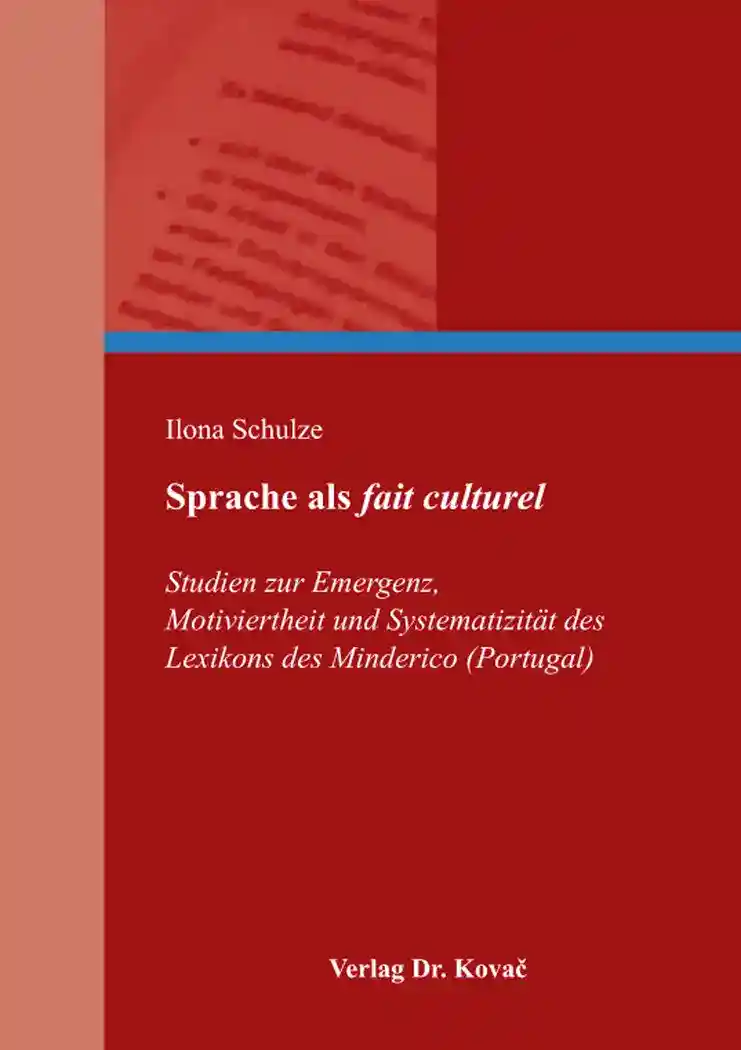Ilona SchulzeSprache als fait culturel
Studien zur Emergenz, Motiviertheit und Systematizität des Lexikons des Minderico (Portugal)
PHILOLOGIA – Sprachwissenschaftliche Forschungsergebnisse, volume 191
Hamburg 2014, 322 pages
ISBN 978-3-8300-7897-5 (print)
ISBN 978-3-339-07897-1 (eBook)
About this book deutschenglish
The everyday experience of language is often linked to the assumption that language is part of the cultural knowledge system of a language community. The monograph addresses this question systematically offering a comprehensive model of language that derives its character as a “fait culturel” from a cognitively grounded, sociological and historical perspective related to the functionality of language. It is shown that language must be basically understood both as a cultural artifact in general and as a cultural fact embodied in individual languages. Being part of the symbolic knowledge system it is specifically the lexicon which reflects the socially transmitted cultural traditions and models (frames) of interaction of member of a language community with its social and economic environment as well as models of collective identity and culturality. The underlying processes have been obscured in many languages due to the long time span of transmitting a given linguistic knowledge system. This why the empiric part of the monograph that illustrates the proposed model turns to a ‘special language’ (Minderico, Portugal) that has developed since the 18th century in the small village of Minde (Central Portugal) into a full-fledged communicative system. Minderico has by large innovated its lexicon, but contrary to other special languages it did not refer to borrowing strategies. Instead, it has started from Portuguese lexical material changing step by step the corresponding semantics with the help of a wider set of strategies that involve among other metonymization, metaphorization, neologisms based on anthroponyms and toponyms. These changes have affected the lexicon to a degree that Minderico become profiled as a comprehensive type of village-internal communication and a means of expressing collective identity. The systematic analysis of the lexical domains involved in these processes shows to which degree (former) factors related to realms of life that are of have been typical for the village of Minde have become effective. In this way, the data help to illustrate the characteristics of language as a “fait culturel”, just as it is shown how we can reconstruct the “fait culturel” as embodied in the lexicon of a given language.Keywords
Cultural LinguisticsLexikalische SemantikLinguistikMindericoSonderspracheSoziolinguistikSprache und IdentitätSprachgeschichteYour book at Dr. Kovač Publishing House
We publish your doctoral thesis >>
